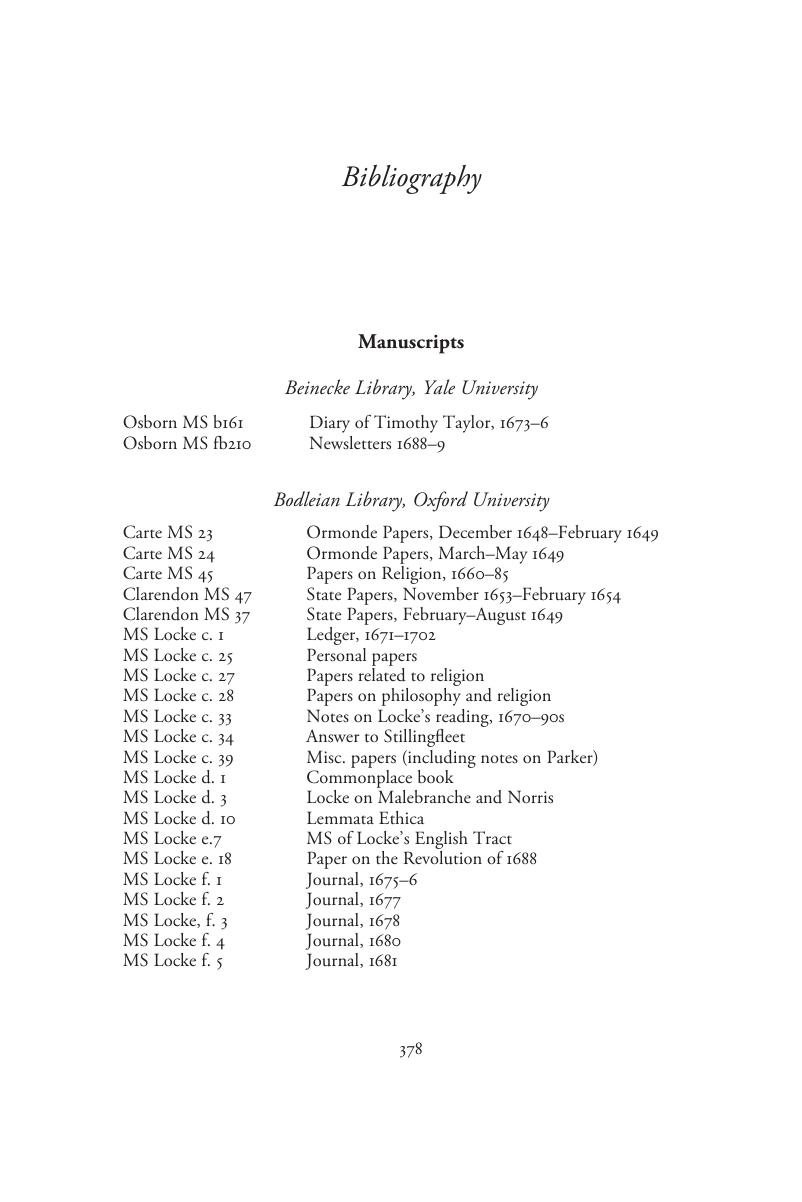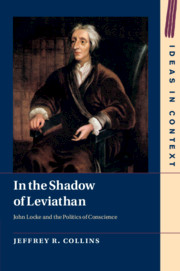Book contents
- In the Shadow of Leviathan
- Ideas in Context
- In the Shadow of Leviathan
- Copyright page
- Dedication
- Contents
- Acknowledgements
- Note on the Text
- Abbreviations
- Introduction
- Chapter 1 John Locke and Interregnum Hobbism
- Chapter 2 The Restoration Projects of Thomas Hobbes
- Chapter 3 Locke and the Restoration Politique
- Chapter 4 Non-domination Liberty in Spiritual Context
- Chapter 5 Locke, Conscience, and the Libertas Ecclesiae
- Chapter 6 Locke and Catholicism
- Chapter 7 Locke and a ‘More Liberal’ Hobbism
- Conclusion
- Bibliography
- Index
- Ideas In Context
- References
Bibliography
Published online by Cambridge University Press: 07 February 2020
- In the Shadow of Leviathan
- Ideas in Context
- In the Shadow of Leviathan
- Copyright page
- Dedication
- Contents
- Acknowledgements
- Note on the Text
- Abbreviations
- Introduction
- Chapter 1 John Locke and Interregnum Hobbism
- Chapter 2 The Restoration Projects of Thomas Hobbes
- Chapter 3 Locke and the Restoration Politique
- Chapter 4 Non-domination Liberty in Spiritual Context
- Chapter 5 Locke, Conscience, and the Libertas Ecclesiae
- Chapter 6 Locke and Catholicism
- Chapter 7 Locke and a ‘More Liberal’ Hobbism
- Conclusion
- Bibliography
- Index
- Ideas In Context
- References
Summary

- Type
- Chapter
- Information
- In the Shadow of LeviathanJohn Locke and the Politics of Conscience, pp. 378 - 420Publisher: Cambridge University PressPrint publication year: 2020

